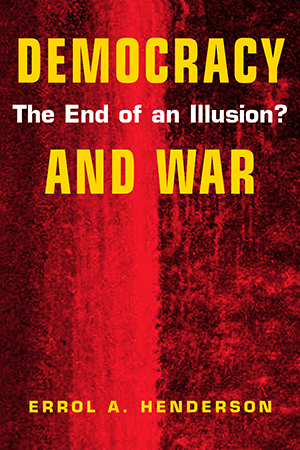Errol A. Henderson
Errol Henderson critically examines what has been called the closest thing to an empirical law in world politics, the concept of the democratic peace.
Henderson tests two versions of the democratic peace proposition (DPP)—that democracies rarely if ever fight one another, and that democracies are more peaceful in general than nondemocracies—using exactly the same data and statistical techniques as their proponents. In effect hoisting the thesis on its own petard, he finds that the ostensible "democratic peace" has in fact been the result of a confluence of several processes during the post–World War II era. It seems clear, Henderson maintains, that the presence of democracy is hardly a guarantor of peace—and under certain conditions, it may even increase the probability of war.
Errol A. Henderson is professor of political science at Pennsylvania State University. His recent articles include "Clear and Present Strangers: The Clash of Civilizations and International Conflict" and "When States Implode: The Correlates of Africa's Civil Wars, 1950-92," and he is author of Afrocentrism and World Politics.
"Henderson proceeds very carefully and his research is extensive. Graduate and undergraduate students as well as policy makers will find [his] work to be an excellent guide."—George Kaloudis, International Journal of World Peace
"This book is a small bombshell in the flourishing subfield of ‘democratic peace' studies.... Henderson writes with vigour and commendable clarity. Democracy and War is unlikely to end the democratic peace debate. But it serves as a provocative and valuable contribution to it, and as an ideal text for undergraduate and graduate courses on peace and war."—Adam Jones, Democratization
"A significant contribution.... Recommended for upper-division undergraduate students, reserachers and faculty, and war and peace practitioners."—Choice
"This excellent small book sheds new light on one of the most deeply researched areas in political science. Written in a clear style accessible to all readers, whether "statistically literate" or not, it should appeal to IR scholars, as well as to those in comparative politics.... this is must reading for teachers and students alike."—Allan C. Stam






